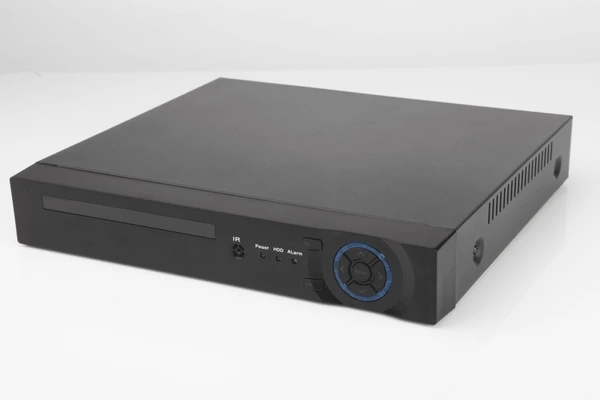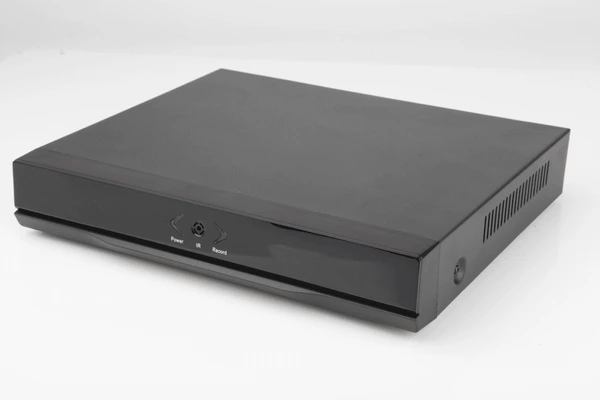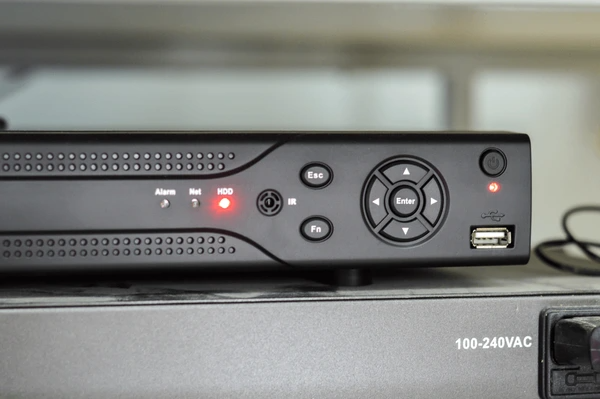
What Are NVR and DVR?
NVR (Network Video Recorder) vs DVR (Digital Video Recorder) are two common types of video recording systems for surveillance. While DVR connects to analog cameras via coaxial cables, NVR works with IP cameras over a network. Both offer unique benefits depending on your security needs.

Key Differences Between NVR and DVR
Fundamental Distinction
A Digital Video Recorder (DVR) is a standalone device that directly captures and encodes analog video signals from CCTV cameras, storing the digitized footage on local storage media like hard drives. In contrast, a Network Video Recorder (NVR) operates on a network, receiving and recording digital video streams from IP cameras or video encoders over a network connection.
Network Capabilities
DVRs are primarily designed for local, on-premises installations, with limited network capabilities for remote access and monitoring. NVRs, on the other hand, are inherently network-based systems, enabling remote viewing, management, and storage of video data from multiple IP cameras across different locations over a network or the internet.
Scalability and Flexibility
DVRs have a fixed number of ports for connecting analog cameras, limiting their scalability. NVRs can accommodate a virtually unlimited number of IP cameras, making them highly scalable and flexible for large-scale video surveillance deployments. NVRs also offer greater flexibility in terms of camera placement, as IP cameras can be located anywhere with network connectivity.
Video Quality and Storage
DVRs typically record video at lower resolutions due to the limitations of analog signals. NVRs can record and store high-definition video streams from IP cameras, enabling better image quality and detail. NVRs also offer more efficient storage solutions, as they can leverage advanced compression techniques and storage optimization methods.
Cost and Maintenance
While DVRs may have lower upfront costs, NVRs can be more cost-effective in the long run, especially for large-scale deployments. NVRs eliminate the need for dedicated video cabling, reducing installation and maintenance costs. Additionally, NVRs can leverage centralized management and software updates, simplifying maintenance and reducing operational expenses.

Advantages of NVR
- Remote Access: NVRs allow remote viewing and control of surveillance footage from any internet-connected device, providing greater flexibility and convenience.
- Scalability: NVRs can easily integrate additional IP cameras as needed, making system expansion simpler compared to DVRs.
- Centralized Management: NVRs enable centralized storage and management of video data, reducing maintenance efforts and costs.
- Higher Resolution: NVRs support higher resolution IP cameras, providing superior image quality compared to analog cameras used with DVRs.
- Efficient Bandwidth Usage: NVRs can optimize bandwidth utilization through compression and streaming techniques.
Advantages of DVR
- Cost-Effective for Small Installations: DVRs are generally more cost-effective for small-scale surveillance setups with limited camera counts.
- Compatibility with Legacy Systems: DVRs can integrate with existing analog cameras, allowing for a gradual transition to IP-based systems.
- Local Storage: DVRs store video footage locally, eliminating the need for network connectivity and reducing potential security risks.
- Simplified Setup: DVRs typically require less complex configuration compared to NVRs, making them easier to install and maintain for non-technical users.
Applications of NVR and DVR
- Security and Surveillance
- Commercial and residential premises monitoring
- Public area surveillance (streets, parks, transportation hubs)
- Remote monitoring of critical infrastructure and facilities
- Traffic Monitoring and Management
- Traffic flow analysis and incident detection
- Automatic number plate recognition (ANPR) for law enforcement
- Monitoring of toll roads and parking facilities
- Industrial and Manufacturing
- Process monitoring and quality control
- Workplace safety and compliance monitoring
- Asset protection and inventory management
- Retail and Hospitality
- Loss prevention and theft deterrence
- Customer behavior analysis for marketing purposes
- Monitoring of customer service and operations
- Healthcare and Education
- Patient monitoring in hospitals and care facilities
- Classroom and campus surveillance for safety purposes
- Remote learning and lecture recording

Challenges of Each System
Disadvantages and Limitations of NVR Systems
- Higher Initial Cost: NVR systems require IP cameras, which are generally more expensive than analog cameras used with DVRs. Additionally, the installation may require networking expertise, increasing labor costs.
- Network Dependency: NVR systems rely heavily on a stable and high-speed network infrastructure, as any network disruptions or bandwidth limitations can impact video transmission and recording.
- Cybersecurity Risks: As NVR systems are connected to networks, they are susceptible to cyber threats such as hacking, malware, and unauthorized access if proper security measures are not implemented.
- Bandwidth Requirements: Transmitting high-resolution video streams from multiple IP cameras can consume significant network bandwidth, potentially causing performance issues if the network is not adequately provisioned.
Challenges and Limitations of DVR Systems
- Limited Remote Access: DVRs are typically located on-site, making remote access and monitoring more challenging and often requiring additional hardware or software solutions.
- Scalability Constraints: Expanding a DVR system to accommodate more cameras or storage capacity can be complex and may require replacing the entire DVR unit.
- Analog Video Quality: DVRs record video from analog cameras, which generally have lower resolution and image quality compared to IP cameras used with NVRs.
- Cabling Complexity: Analog cameras require separate cables for video and power, leading to a more complex and messy installation compared to PoE-enabled IP cameras.
- Limited Security: Analog video signals transmitted from cameras to DVRs are not encrypted, making them susceptible to unauthorized access and tampering.
Conclusion: NVR vs DVR – Which Is Right for You?
Choosing between NVR and DVR depends on your priorities. For modern, high-resolution systems with remote access, NVR is the clear choice. If you’re working with existing analog cameras or need a cost-effective option, DVR can still meet your needs. Evaluate your setup to pick the best solution!
To get detailed scientific explanations of NVR vs DVR, try Patsnap Eureka.

